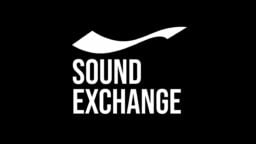US Congressman Jerrold Nadler and Marsha Blackburn yesterday introduced the Fair Play, Fair Pay Act of 2015 – which seeks to impose a performance right that would see artists and labels paid when their tracks are played on AM/FM radio.
Songwriters are currently paid when their tracks are broadcast on traditional radio, but performers are not – setting the US apart from almost every developed nation in the world.
Confusingly, artists are paid in the country – via SoundExchange Collections – when their tracks are played on personalised digital radio such as Pandora, and satellite radio such as Sirius XM.
The Fair Play, Fair Pay Act of 2015 seeks to correct what its supporters consider three ‘significant injustices’: the establishment of a sound recording royalty for AM/FM radio, removing satellite radio’s below-market-rate exemption, and treating pre-1972 recordings with the same level of respect as those made after February of 1972.
However, the Act faces a lengthy fight if it’s to be enshrined in law. The next key legislative steps would be having the bill considered in the House Judiciary Committee either with a hearing on the issues or through a vote. The Senate will also need to consider the bill, but at this point it has not been introduced there yet.
The next step for the Fair Play Fair Pay lobby is grassroots mobilising and putting pressure on Congress.
However, it faces fierce opposition from the radio trade body the National Association of Broadcasters. The NAB is strongly lobbying against the FPFP act with its own ‘Local Radio Freedom Act’, while claiming that any measure to force radio to pay artists and labels would devastate local stations.
Music First, a collective of artist representatives who have been calling for Fair Play, Fair Pay said in a statement: “Thanks to Reps. Nadler and Blackburn, we stand at the doorway of an incredible opportunity – a once-in-a-generation chance to make radio work better for music creators, radio services, and, most importantly, music fans.
“It is time for Congress to update music licensing laws. AM/FM radio, satellite radio and Internet radio exist side by side in car dashboards and compete for the same listeners. But whether performers and copyright owners are paid, and how much, depends solely on what button you press or app you choose. On Internet radio, it is one rate. On satellite, it is a different, lower rate. And on AM/FM, there is no rate at all – music creators get paid nothing. I think that we can all agree that makes no sense.
“Now, some digital services are claiming they don’t have to pay for pre-72 recordings. Several court decisions have already dismissed this absurd claim.
“The solution: all radio services should pay under the same ‘fair market value’ royalty standard for all of the music they play. Like everyone else who works, creates, or innovates, music creators deserve fair pay for their work.
“It’s a question of basic economic fairness, but it is also a matter of fair competition between music services. No more special privileges for old technologies. No more giveaways. No more special interest exemptions and subsidies. No more picking winners and losers among radio platforms. Let the best services win – fair and square, on the depth of their playlists and the quality of their products.
“Fair market value for music will encourage creativity by music creators. It will promote innovation among music services. And – most importantly – it will give fans the best music they have ever heard – delivered in the most exciting ways they could ever imagine.”
And Michael Huppe, president and chief executive officer of SoundExchange said: “For decades, music services have gotten away with building their business on the backs of hard working musicians, paying unfair rates — and in the case of the $17.5 billion radio industry, paying nothing at all — for the music they use. The Fair Play Fair Pay Act introduced today will bring much needed reform to the music industry and addresses many of the issues that plague the recorded music industry.
“It is time that we properly pay the artists who put so much hard work into creating the music at the core of these services. If it weren’t for them, these stations would be broadcasting little more than static.
“At the nexus of music and technology, SoundExchange is at the very center of the industry, representing the entire record music industry. In June 2014, we testified before Congress and laid out SoundExchange’s guiding principle: all creators should receive fair pay, on all platforms and technologies, whenever their music is used. This past February, the Copyright Office put out a comprehensive report that laid out a similar principle and today we have a bipartisan coalition in Congress heeding the same call.”Music Business Worldwide




